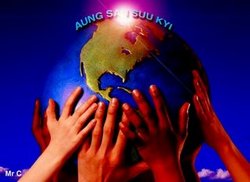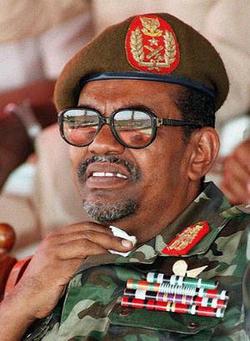By Jonathan Manthorpe, Vancouver SunMay 11, 2009 2:04 AM
It was immediately noticeable in the stories from the official Burmese media last week that the American who swam to the lakeside villa of detained opposition leader Aung San Suu Kyi spent "three nights" in the compound before attempting to swim back to his hotel.
If the story's true, the man named as John William Yeattaw also spent three days with Suu Kyi, but -- nudge, nudge, wink, wink -- that doesn't have the same implication.
And it is because of those implications from the military regime's mouthpieces -- that this was an amorous assignation rather than a political event or even a weird piece of American eccentricity -- that people in Rangoon and elsewhere in Burma have grave doubts about its truth.
There is a widespread belief in Rangoon that this story was manufactured to sully Suu Kyi's reputation and thus blunt criticism of the military regime, which has already announced it plans to renew her detention when the current six-year term ends later this month.
But Suu Kyi's popularity among Burmese people remains undimmed, though she has been detained in her crumbling and mould-stained house on University Avenue in Rangoon for most of the last 19 years.
The junta has been unstinting in its efforts over the years to manufacture or twist events to undermine the domestic support that saw her National League for Democracy (NLD) win 85 per cent of the parliamentary seats in 1990 elections.
The junta, now led by General Than Shwe, has always refused to acknowledge those results. It spent the last 12 years concocting a fraudulent "civilian" constitution adopted in a sham referendum last year. This envisages multi-party elections next year, but also ensures the military continues to control the presidency and all the important ministries, and retains the authority to dismiss the parliament at will.
So it is hardly surprising that most of the western world, and especially the United States and the European Union, continue to apply rigorous economic sanctions and other embargoes on contacts with the Burmese regime. Indeed, only 10 days ago the EU reaffirmed those sanctions.
But there is a growing acceptance that the moral high ground held by the West on the Burma issue is a road to nowhere. The generals have not budged one inch over the years in the face of sanctions that have kept most of Burma's 80 million people in abject poverty.
The generals themselves are largely untroubled by the constraints of sanctions. They have merely grown grossly rich on natural resources deals with China, which doesn't give a fig about other regimes' repression of their people any more than it does about its own.
And Than Shwe and his boys have been just as disdainful of the blandishments of the "constructive engagement" policies of Burma's neighbours in the Association of Southeast Asian Nations. With neither stick nor carrot moving the junta, it is clearly time for a new approach.
Last October the International Crisis Group led by former Australian foreign minister Gareth Evans criticized the West for tying aid to political reform in Burma after hurricane Nargis struck last year. The group followed that up with a report last month called "Missing the Boat on Myanmar" -- Myanmar is the name the junta uses for Burma.
In this report the group said "The EU should abandon a policy maintained by those with an eye on noble points rather than on new opportunities to promote change."
Even Suu Kyi, who used to be adamant that economic sanctions were essential is now much less dogmatic on the question.
The EU may not have got the message that sanctions are counter-productive, but the new administration in Washington has. In February, while on a visit to Indonesia, Secretary of State Hillary Clinton said, "Clearly, the path we have taken in imposing sanctions hasn't influenced the Burmese junta."
It seems she has ordered a review and refashioning of American policy towards Burma. Clinton's main policy adviser on mainland Southeast Asia, Stephen Blake, has even visited the generals' new capital at Naypidaw, where he met foreign minister U Nyan Win.
The review may well conclude that, rather than sanctions, it may be wiser to smother the malevolent economic influence of China with trade and investment in Burma.
It may also decide that next year's elections, flawed as they are, are better than none, especially as the junta has said clearly it will allow United Nations monitors.
It may thus make sense to urge Suu Kyi and the NLD to drop their current boycott and instead show some faith in the popular support that won them the 1990 elections.
And it's worth remembering that the Burmese junta has modelled the new constitution on the old military-dominated system in Indonesia. But in 1998 Indonesia's military dictatorship collapsed under its own weight and evolved with surprisingly little violence into a proper democracy.
Rest of your post
Monday, May 11, 2009
Making fake story or Time for a fresh approach to Burma's military government
Subscribe to:
Post Comments (Atom)






















No comments:
Post a Comment